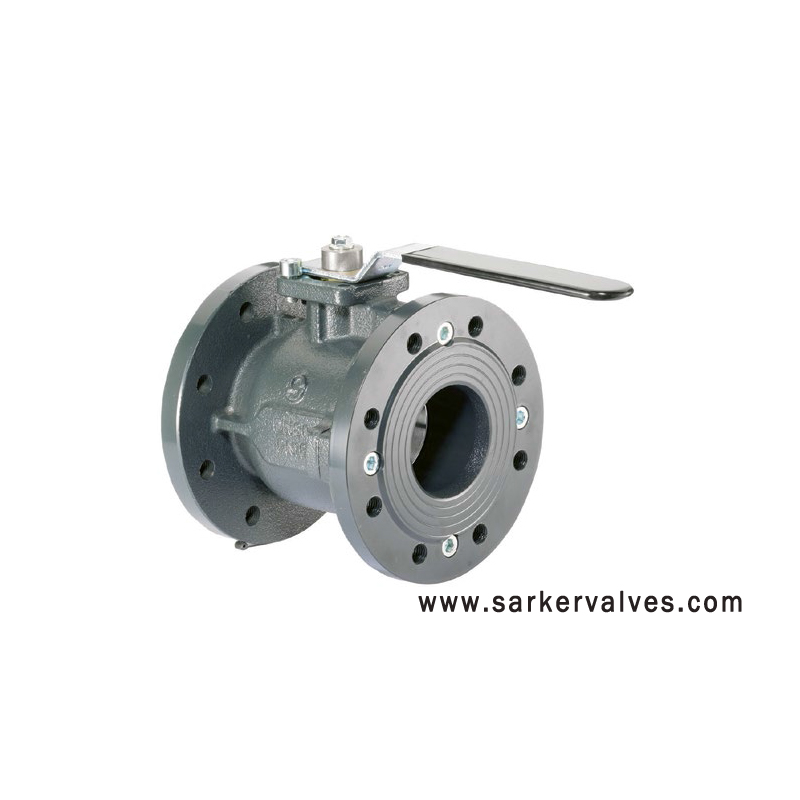
A ball valve is a closed-off valve that controls the progression of a fluid or gas by methods for a revolving ball having a drag. By swivel the ball valve a quarter-turn (90 degrees) around its hub, the medium can course through or is shut off. They are portrayed by a long help life and give a dependable fixing over the life expectancy, in any event, when the valve isn't being used for quite a while. Therefore, they are increasingly famous as a shut-off valve then, for instance, the entryway valve. Also, they are safer against debased media than most different kinds of valves. In extraordinary forms, ball valves are additionally utilized as a control valve. This application is less normal because of the moderately constrained exactness of controlling the stream rate in correlation with different sorts of control valves. Nonetheless, the ball valve additionally offers a few favorable circumstances here. For instance, the valve despite everything guarantees a solid fixing, even on account of grimy media. Ball valve is the most utilized liquid shutoff valve in upstream oil and gas creation offices, both coastal and seaward.
A ball valve is a reasonable option in contrast to different valves. Ball valves utilize a metal ball with an opening drilled through the inside, sandwiched between two seats to control stream. Utilized in numerous hydrocarbon procedure applications, ball valves are fit for throttling gases and fumes and are particularly helpful for low-stream circumstances. These valves are brisk opening and give a tight conclusion on difficult to-hold liquids
Basic Ball Valve Types
• Standard (Strung)
• Hydraulic
• Flanged
• Vented
• Circuit work
Lodging materials
Metal: Metal ball valves have the biggest piece of the overall industry. Metal is a compound of copper and zinc and has great mechanical properties. Metal valves are utilized for (drinking) water, gas, oil, air, and numerous other media. Chloride arrangements (for example seawater) or demineralized water may cause dezincification. Dezincification is a type of erosion where zinc is expelled from the combination. This makes a permeable structure with an extraordinarily diminished mechanical quality.
Tempered Steel: Hardened steel ball valves are utilized for destructive media and forceful conditions. They are subsequently frequently utilized in seawater, pools, assimilation establishments, with high temperatures, and numerous synthetic compounds. Most hardened steel is austenitic.
PVC (Polyvinyl Chloride): PVC ball valves frequently have a lower cost (aside from ISO-top valves) and are generally utilized in the water system, water supply, and waste or destructive media. PVC represents polyvinyl chloride. PVC is impervious to the large portion of the salt arrangements, acids, bases, and natural solvents. PVC not reasonable for temperatures higher than 60 °C, and is likewise not impervious to fragrant and chlorinated hydrocarbons. PVC isn't as solid as metal or tempered steel, in this manner PVC ball valves have lower pressure rating.
